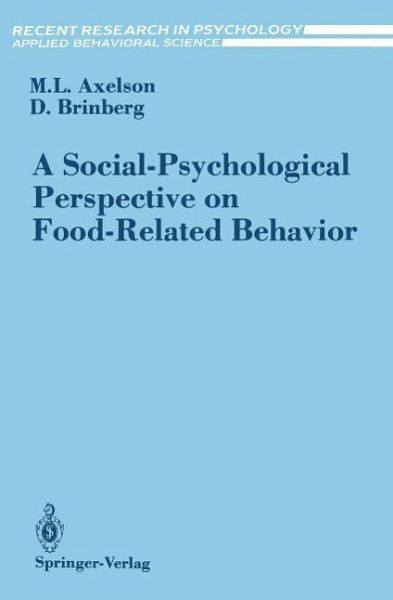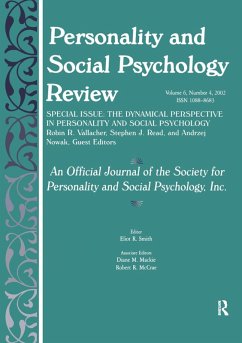
A Social-Psychological Perspective on Food-Related Behavior (eBook, PDF)
Versandkostenfrei!
Sofort per Download lieferbar
72,95 €
inkl. MwSt.
Weitere Ausgaben:

PAYBACK Punkte
36 °P sammeln!
Many of the diseases which afflict people in an affluent society like the United States seem to be related to food consumption (e.g., adult-onset diabetes mellitus, hyperlipidemia, and colon cancer). In recent years, the health-related professions have become aware that their exclusive aim of disease treatment must be expanded to include health promotion. Professionals in food and nutrition, health education, social marketing, and psychology, as well as others have become interested in finding ways to promote healthy behaviors such as appropriate food consumption patterns. To modify food-relat...
Many of the diseases which afflict people in an affluent society like the United States seem to be related to food consumption (e.g., adult-onset diabetes mellitus, hyperlipidemia, and colon cancer). In recent years, the health-related professions have become aware that their exclusive aim of disease treatment must be expanded to include health promotion. Professionals in food and nutrition, health education, social marketing, and psychology, as well as others have become interested in finding ways to promote healthy behaviors such as appropriate food consumption patterns. To modify food-related behavior, knowledge about why people eat what they eat is required. Both biological and sociocultural factors determine people's consumption behavior. This monograph, however, examines only the sociocultural determinants of individuals' food-related behaviors within their zone of biological indifference. The sociocultural variables are divided into two major categories - sociodemographic and psychological. Sociodemographic variables are often called external variables and include income, ethnicity, age, and the like. Psychosocial variables are thought to reflect the individual's internal state, and commonly examined variables include knowledge, beliefs, and attitudes.
Dieser Download kann aus rechtlichen Gründen nur mit Rechnungsadresse in A, B, BG, CY, CZ, D, DK, EW, E, FIN, F, GR, HR, H, IRL, I, LT, L, LR, M, NL, PL, P, R, S, SLO, SK ausgeliefert werden.












